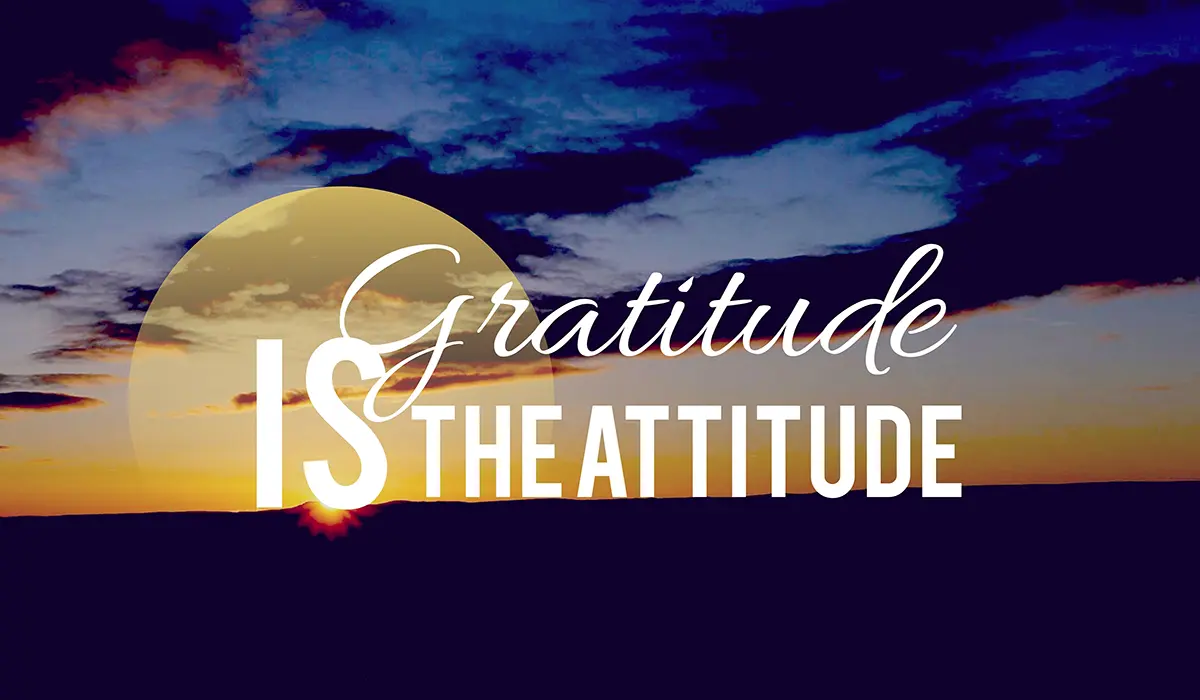Why Gratitude Is the Foundation of Success
Gratitude isn’t just a warm feeling — it’s a practical, repeatable habit that reshapes how you live, work, and lead.
Introduction: a different kind of success mindset
Success is often framed as a checklist: goals hit, promotions earned, revenue increased. Those targets matter, but they’re only part of the picture.
Gratitude is the quiet engine behind sustainable success — the habit that stabilises ambition, fuels resilience, and improves relationships along the way.
When you build a life that notices and appreciates what already exists, you create a mental and emotional environment where progress is easier, clearer, and more meaningful.
How gratitude reshapes thinking
At its core, gratitude changes the lens through which you view the world. Instead of scanning for what’s missing, a grateful mindset notices what’s present.
That shift reduces the noise of scarcity thinking and frees up mental energy for creative problem-solving. You begin to recognise opportunities instead of obstacles.
In practice this means fewer wasted hours on worry and more focused action toward what actually moves the needle.
Gratitude strengthens resilience
Everyone faces setbacks. The difference between those who bounce back quickly and those who stagnate often comes down to perspective.
Gratitude trains you to acknowledge progress — even small progress — which preserves motivation when things get hard.
When a project stalls, a grateful person can say, “We learned X; we still have Y,” rather than drowning in blame. That balanced view helps you iterate faster, learn smarter, and get back on course.
It improves focus and productivity
Constant chasing creates a restless mind. Gratitude anchors attention.
By routinely appreciating what’s working — tools, teammates, small wins — you reduce internal friction and increase focus on meaningful tasks.
Teams that cultivate appreciation tend to waste less time on internal conflict and more time shipping results. At the individual level, gratitude prevents decision-fatigue by clarifying what truly matters.
Gratitude deepens relationships and leadership
Success rarely happens alone. Whether you’re an entrepreneur, manager, or freelancer, your network and team are part of your engine.
Gratitude is the social grease that makes collaboration smooth. Saying “thank you” — and meaning it — builds trust, loyalty, and goodwill.
Leaders who express appreciation create cultures where people feel seen and valued, which reduces turnover and increases discretionary effort.
Practical gratitude habits that support success
Gratitude becomes useful only when it’s practised. Here are simple, practical habits you can use today:
- Daily gratitude journaling: Each morning or evening, write 3 things you’re grateful for. They can be tiny — a hot cup of coffee, a helpful colleague, a moment of clarity.
- Gratitude in meetings: Start one team meeting a week with two quick acknowledgements of recent contributions. It sets a positive tone and recognises effort.
- Thank-you notes: Send quick, specific thank-you messages after help, introductions, or wins. Specificity makes appreciation feel authentic.
- Gratitude pauses: When stressed, take a 60-second pause to list 3 things that went right in the past 24 hours. It calms the nervous system and redirects energy to solutions.
- Celebrate micro-wins: Keep a visible list of small milestones. Celebrate them publicly or privately so progress is visible and valued.
Common pitfalls and how to avoid them
Gratitude can become shallow if it’s used as an automatic platitude. To stay effective:
- Be specific: Instead of “thanks for your help,” say “thanks for staying late yesterday to finish the report — it let us meet the client deadline.”
- Mix gratitude with accountability: Appreciation shouldn’t replace constructive feedback. Pair thanks with clear expectations so performance improves.
- Don’t weaponise gratitude: Avoid using “be grateful” to dismiss concerns or pain. True gratitude coexists with honesty and empathy.
Stories that prove the point
Think about people who stay calm and purposeful under pressure — they rarely rely on force of will alone. Instead, they acknowledge support, recognise partial progress, and reframe difficulty as information.
That combination of appreciation and clarity helps them keep teams aligned and projects moving even when conditions are far from perfect.
These aren’t romantic anecdotes; they’re repeatable leadership behaviours you can adopt.
Measuring the impact
You don’t have to trust the feel-good part alone. Track the effects of gratitude practices by measuring team morale, turnover, the frequency of follow-through on tasks, or your personal energy levels.
Even small improvements — fewer missed deadlines, quicker conflict resolution, shorter decision cycles — compound over months into meaningful competitive advantage.
How to start today
Begin with one tiny action: tonight, write down three specific things you’re grateful for and why. Tomorrow morning, thank one person with a short message.
Repeat both habits for 21 days and observe what shifts. Most people notice clearer thinking, better sleep, and smoother conversations within weeks.
That’s the power of gratitude as a foundation: small, consistent practices that change the soil so bigger ambitions can grow.
Conclusion
Gratitude doesn’t mean being complacent. It means building a stable baseline of appreciation from which ambition can operate more effectively.
When you combine goal-driven action with a grateful perspective, you get a version of success that’s durable, humane, and creative.
Try the small practices above and treat gratitude as part of your daily toolkit — not an optional extra, but the foundation on which lasting success is built.
Contact us today for more information on Gratitude.
